Alice Wheeldon campaigners hold Royal Courts of Justice vigil
- Published
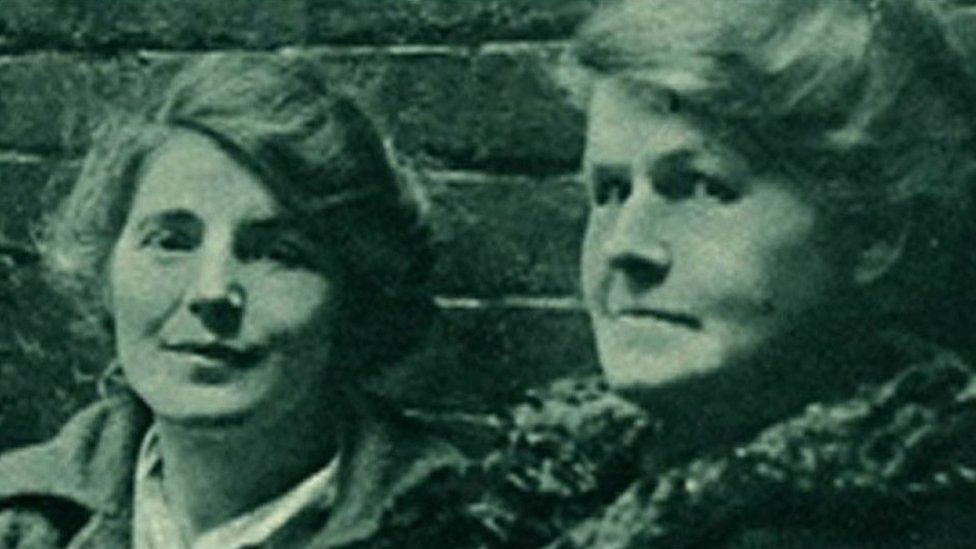
Alice Wheeldon (right) was convicted along with her daughter Winnie Mason (right) and son-in-law Alfred Mason
Relatives of a suffragette jailed for plotting to poison a prime minister have held a vigil outside the Royal Courts of Justice as part of their campaign to clear her name.
Alice Wheeldon was convicted 100 years ago, on 11 March 1917, of planning to kill Lloyd George as she opposed World War One.
Two of her great-granddaughters came from Australia for the vigil.
One has cancer and says she is battling against time to clear her name.
Deirdre Mason said: "Get on with it, finish it, sort it out and I will be happier.
"It has been a 100-year injustice. Even now it is worthwhile repealing it, quashing the convictions and showing British justice has some integrity."
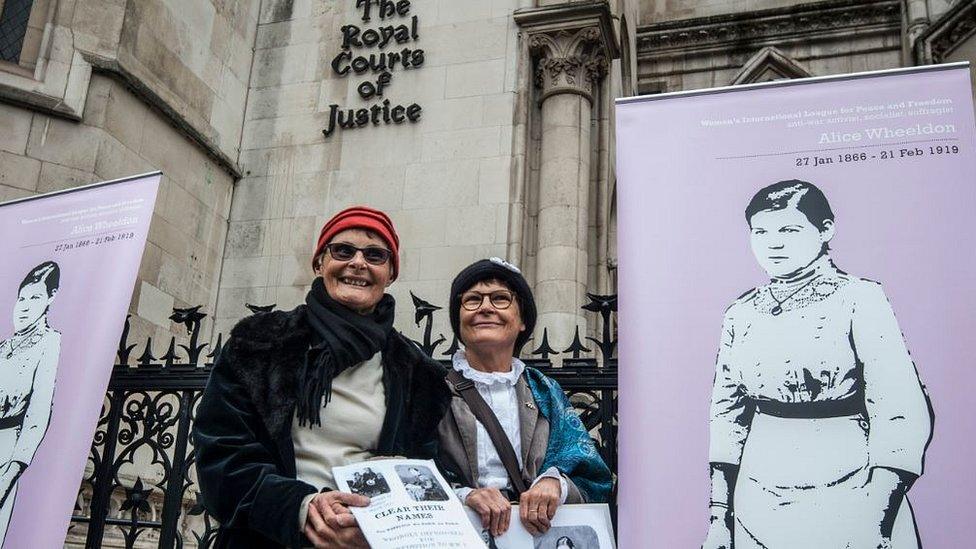
Deirdre (l) and Chloe Mason travelled from Australia to take part in the vigil and wore period costumes
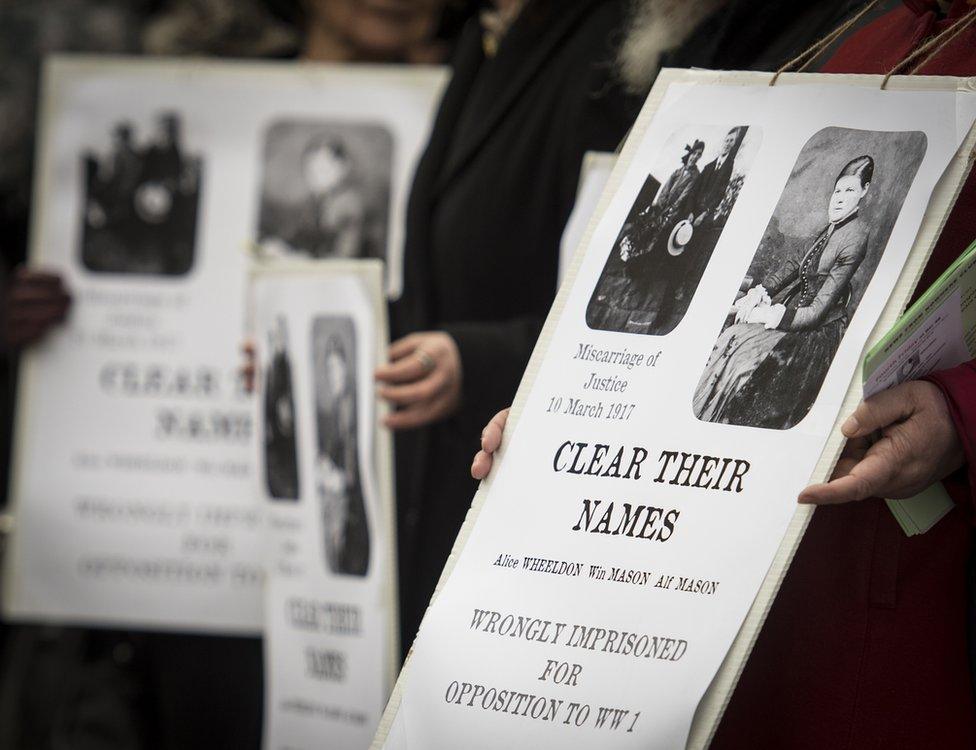
Campaigners claim the family were wrongly imprisoned because of their opposition to World War One
Deirdre and her sister Chloe Mason are pushing to have a submission to the Criminal Cases Review Commission, which will decide whether the case can go before the Court of Appeal.
They want to clear the names of Mrs Wheeldon, her daughter Winnie Mason and son-in-law Alfred Mason, who were all convicted of conspiracy to murder.
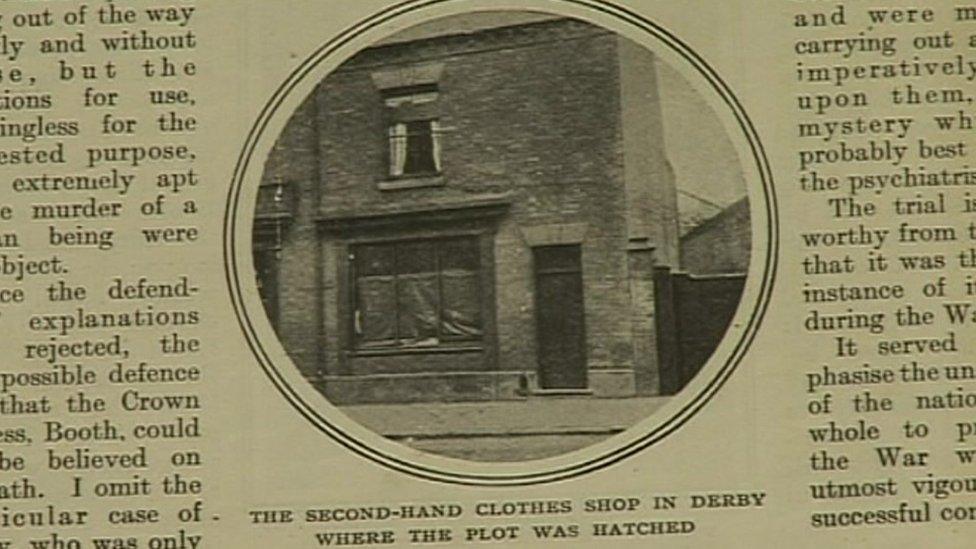
Alice Wheeldon worked as a shopkeeper in Derby
Mrs Wheeldon was a shopkeeper in Derby but had become the focus of government attention, along with her four children, because of their anti-war activities.
A man called Alex Gordon pretended to sympathise with them, but he was an MI5 spy who claimed they were plotting to kill Lloyd George with a poisoned dart.
Campaigners claim the evidence was fabricated in order to discredit the family and the anti-war movement, and that the MI5 agent was known for mental instability and dishonesty.
Laurence Marshall, Mrs Wheeldon's great-great-great-nephew, said: "I know we say the past is another country but even then a court case like that should never have been allowed.
"She should never have been put to trial in the first place."

Alice Wheeldon lived behind the shop in Derby where she worked
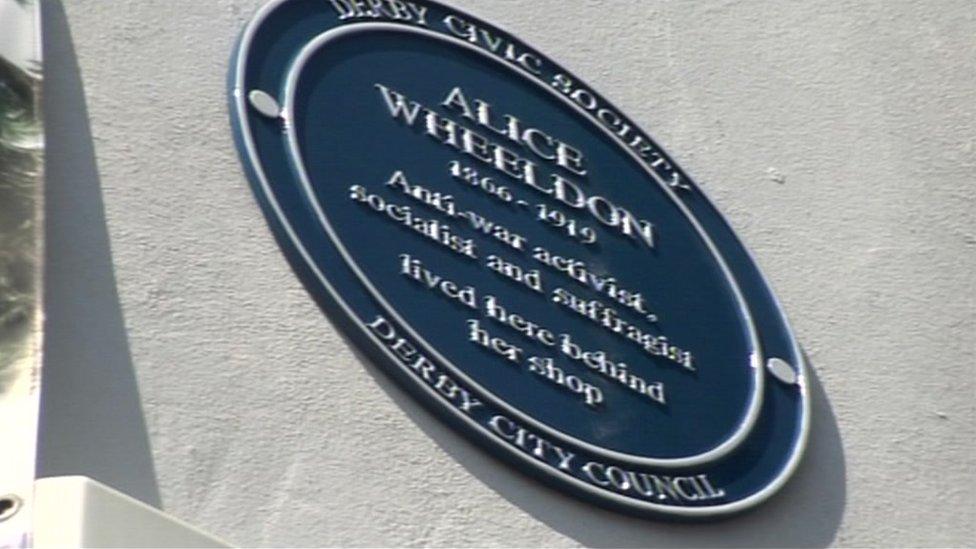
Alice Wheeldon was honoured with a blue plaque in 2013
Mrs Wheeldon went on hunger strike and served only nine months of a 10-year sentence.
However, the family were social pariahs and Mrs Wheeldon died in 1919.
Liz Smith, whose grandmother knew Alice, was among those attending the vigil.
"My grandmother used to take food to her after dark because there was a lot of hatred in Derby for the Wheeldons," she said.
"People were very fearful of being seen to help them out, but she did go and help them out."
- Published6 May 2014
.jpg)
- Published30 April 2013
.jpg)
- Published19 January 2012
.jpg)